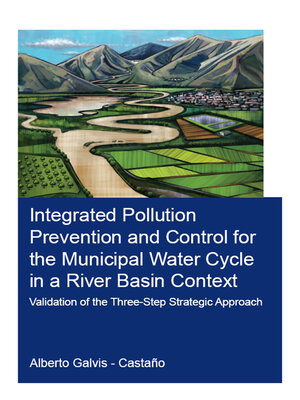Integrated Pollution Prevention and Control for the Municipal Water Cycle in a River Basin Context
ebook ∣ Validation of the Three-Step Strategic Approach · IHE Delft PhD Thesis Series
By Alberto Galvis-Castaño

Sign up to save your library
With an OverDrive account, you can save your favorite libraries for at-a-glance information about availability. Find out more about OverDrive accounts.
Find this title in Libby, the library reading app by OverDrive.



Search for a digital library with this title
Title found at these libraries:
| Library Name | Distance |
|---|---|
| Loading... |
The protection of water resources from deterioration in quality by pollution discharges is probably the biggest challenge in sustainable water resources management in the recent decades. In practice, most countries have adopted pollution control strategies and measures which are based on 'end-of-pipe' solutions: wastewater treatment plants and adjustments to the regulations, including taxes for wastewater discharges (Conventional Strategy). Although this approach involves very high costs, on many occasions, this strategy has been a complete failure. The research described in this book contribute to the development of sustainable solutions for the previously outlined problem. It was based on the validation of the Three-Step Strategic Approach concept (3-SSA), which includes: 1) prevention or minimisation of waste production; 2) treatment aimed at recovery and reuse of waste components, and 3) disposal of remaining waste with stimulation of natural self-purification of the receiving water body. The study showed overall positive effects of the 3-SSA, in comparison of Conventional Strategy, on wastewater management in the Upper Basin (389 km) of the Cauca river, the second most important river in Colombia. The Cost Benefit Analysis clearly favoured the 3-SSA, generating a major impact on the river water quality at lower cost compared to the Conventional Strategy.







